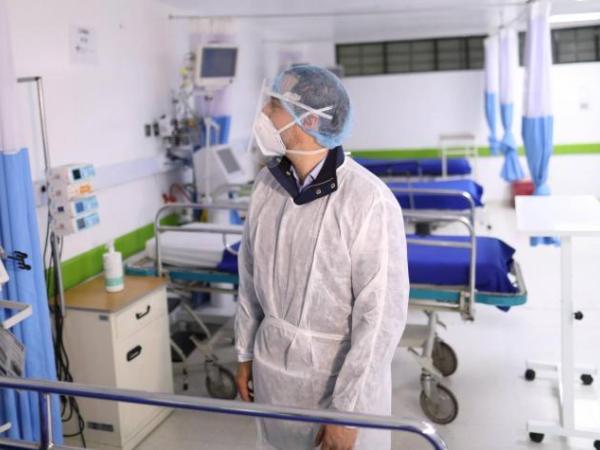
The former Commander-in-Chief of the Army, General Ricardo Martinez -who announced his resignation yesterday, after being summoned to testify as guilty for an edge of Milicogate-, disclosed as the last action in command, a report from the institution that reflects on the actions of the Army in the last 50 years. In the text, they repudiate events that occurred during the dictatorship of Augusto Pinochet.
The document, called “Reflection on the actions of the Army and its members in the last 50 years and their effects on the military ethos”, is the first time that the military institution condemns the actions of the military during the period between 1973 and 1989 .
The analysis and discussion work “was carried out from an eminently institutional or military perspective” and initially included research and sessions of presentation and debate with the Corps of Generals”, while later it included “the work of a team of military professionals under the direct supervision” of General Martínez, the report indicates.
Sentences for acts carried out during a dictatorship
The document indicates that the “Caravan of Death” – an Army entourage that toured the country during the dictatorship, and that murdered and disappeared opponents – led by General SErgio Arellano Stark it was “one of the most damning episodes”.
“He made a tour of various garrisons in the north and south of the country, leaving a trail of executions that seriously affected the Institution and that later meant that members of the Army, most of whom were of low hierarchical rank, were prosecuted and sentenced. These people were left helpless of support, since it was assumed that the responsibilities were individual”, the text points out.
“This general’s commission can be described as a perfectly planned task from Santiago, executed through an identical program in each city, with an incredibly undisciplined behavior of its members to intimidate subordinate personnel of the units and give a veiled and disguised orientation in ground, how to proceed with the ‘adversary,'” he adds.
In this line, the text indicates that the “actions of General Arellano were absolutely foreign and at odds with a correct example of love for the country and the Army.”
They also described as “institutional shame” the assassination of the former commander in chief, General Carlos Prats -also former Minister of the Interior of the former President Salvador Allende-, and his wife Sofia Cuthbertheld in 1974 in Buenos Aires, Argentina.
Members of the DINA were involved in the murder. “Despite the fact that it was carried out by a security organization that did not belong to the Army (…) most of those who were convicted by the courts belonged to the Institution,” they pointed out.
“Reprehensible” and “unacceptable”
“Although most of the arrests obeyed a superior order, it is reprehensible that the detainees have been tortured, as unfortunately happened and even more so the fact that some have been executed without due judicial process, as was expressly provided in the Code of Military Justice of 1944”, comments the Army in the document.
“These situations caused serious damage to the prestige of the Institution,” they emphasized.
Likewise, they described as “unacceptable” that “the bodies have not been delivered to their families in all cases so that they could be buried according to their beliefs. This aspect has been one of the most decisive in the accusations made against the Army , which to this day have the different human rights organizations”.
In addition, they mentioned that the actions in which the Army Intelligence Directorate (DINE) was involved at the time deserve “the strongest repudiation.”
“The courts of justice later verified the participation of some members of this institutional distribution in the events that caused the death of the union leader Tucapel Jimenezwhich occurred in February 1982 and the chemist Eugenio Berries in November 1992,” they explained.

















